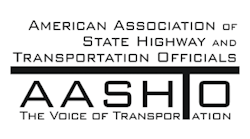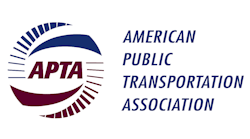Rural, small city, paratransit and nonemergency medical transportation providers in the U.S. have experienced cancellations of small bus contracts, price increases between 30 and 70 percent and growing wait times to receive delivery of these vehicles.
The estimated backlog of 20,000 vehicles is expected to grow significantly in 2023 and may take five to seven years to recover.
According to a Community Transportation Association of America (CTAA) survey in August, these factors have led to 80 percent of respondents feeling highly concerned with the state of standard vehicle replacements.
CTAA, with the American Public Transportation Association (APTA) and the American Association of State Highway and Transportation Officials (AASHTO), sent a letter to U.S. Department of Transportation Secretary Pete Buttigieg requesting the department’s assistance to make more small bus chassis available to the market and streamline procurement regulations.
The organizations note the historic levels of funding made available to public transit through the Infrastructure Investment and Jobs Act, but express concern the “burgeoning crisis in the small bus industry” threatens to stifle the impact of the act on the transit industry.
CTAA, APTA and AASHTO asked the secretary for assistance in the following areas:
- Increase availability of chassis by encouraging manufacturers (the letter specifically mentions Ford) to set aside units for transit use and small buses.
- Streamline procurement regulations to emphasis flexibility and use the vehicle backlog, nationally, to determine the timeframe for these procurement process changes.
- Expand the Federal Transit Administration’s (FTA) proposed Buy America general nonavailability waiver for passenger vans (87 Fed. Reg. 43101) to include waiving Buy America requirements for small buses and vans when manufacturers are not able to guarantee delivery within 12 months or less of an order. Use this temporary waiver to incent manufacturers to locate production facilities in the United States.
- Offer clear guidance to FTA grantees on whether, when and how to amend bus procurements or reprogram funds when vehicles as specified cannot be delivered under the terms of a procurement agreement.
“We strongly encourage the U.S. Department of Transportation to help the public transit industry secure additional chassis for the small bus market. It is critical to our shared goal of ensuring that the Bipartisan Infrastructure Law provides unparalleled opportunities to all Americans,” the letter concludes.

Mischa Wanek-Libman | Group Editorial Director
Mischa Wanek-Libman is director of communications with Transdev North America. She has more than 20 years of experience working in the transportation industry covering construction projects, engineering challenges, transit and rail operations and best practices.
Wanek-Libman has held top editorial positions at freight rail and public transportation business-to-business publications including as editor-in-chief and editorial director of Mass Transit from 2018-2024. She has been recognized for editorial excellence through her individual work, as well as for collaborative content.
She is an active member of the American Public Transportation Association's Marketing and Communications Committee and served 14 years as a Board Observer on the National Railroad Construction and Maintenance Association (NRC) Board of Directors.
She is a graduate of Drake University in Des Moines, Iowa, where she earned a Bachelor of Arts degree in Journalism and Mass Communication.





